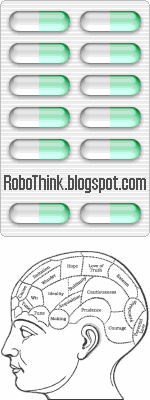Emotional Ill-Health or Mental Illness?
In 2004, The Royal Australian College of General Practitioners (RACGP) commissioned a review of burn-out and psychiatric illness among doctors. The findings were published in a report titled The Conspiracy of Silence: Emotional Health Among Medical Practitioners. It says patient care, particularly in mental health, may be compromised by emotional illness in doctors. For the most part, the report talks of 'emotional ill-health'. It gives the impression that the label 'mental illness' is a term doctors reserve for patients. The three-part report was originally distributed as a PDF document on the RACGP website (newspaper article: GPs get sick and suffer in silence).
- Part 1 - How healthy are doctors?
- Part 2 - What are the origins of doctor emotional ill-health?
- Part 3 - Improving doctor emotional ill-health.
"Psychiatric illness and suicide: There are reports of high levels of depression and psychiatric disturbance among medical practitioners. There is also compelling evidence of an increased suicide risk for all medical practitioners but particularly for female doctors."From the Summary for Part 2.....
"Medical training: Medical training appears to be a particularly stressful process, not just because of academic demands, but because of the lack of emphasis on interpersonal and communication [skills]. Poor interpersonal support may also fail to provide the necessary emotional skills for subsequent medical practice and self care."
From the main text:
A quote from Part 1....."Miller (1997) reports that up to 6-10% of US physicians suffer from a major psychiatric disorder such as schizophrenia, depression, bipolar condition or personality disorders. However, levels of sub-clinical psychiatric disturbance may be higher."Another quote from Part 1.....
"Psychiatrists report that a high proportion of their patients are doctor's wives and children. For example, Miles et al. (1975) report that doctor's wives present for psychiatric treatment in disproportionately high numbers and that the majority of these patients are seeking assistance for marital difficulties resulting from a dependent, histrionic wife and an emotionally detached husband."A quote from Part 2.....
"Medical training may be criticised for its focus on the rational and biological issues of health, while it neglects the intuitive and emotional aspects. Training tends to be hierarchical, competitive and grade or success-focused, rather than acknowledging personal feelings and self-awareness. Performance based measures of success may undervalue the development of interpersonal skills. The lack of recognition according to personal and emotional health (both of self and of others) may significantly reduce the medical student's ability to deal with these issues in later practice. The culture of self-denial and altruism may seem appropriate in medical practice, yet taken to an extreme may seriously impede a doctors ability to both stay healthy and deliver quality health care to others."This is not a new phenomenon. More than 30 years ago the Journal of the American Medical Association reported a study by their own Council on Mental Health -- "The sick physician: Impairment by psychiatric disorders, including alcoholism and drug dependence" (JAMA 223:684, 1973). The report emphasized that a national effort was necessary to identify and help impaired physicians return to optimal functioning and to safeguard patients.
- Related blog article:
Bitter Pills in Medical School

<< Home